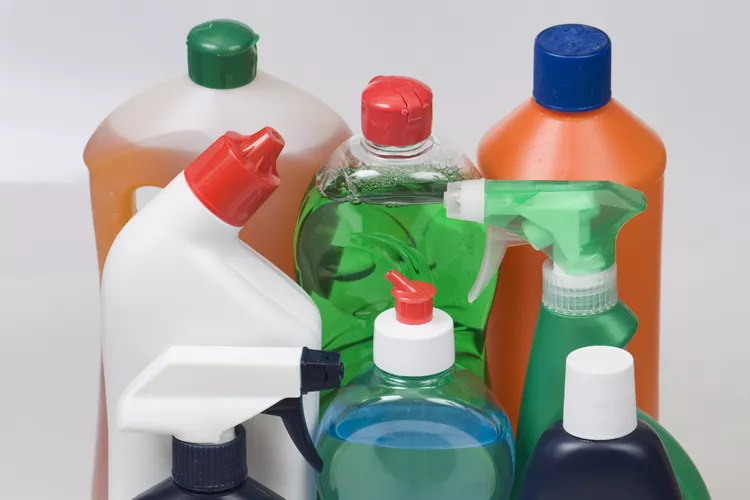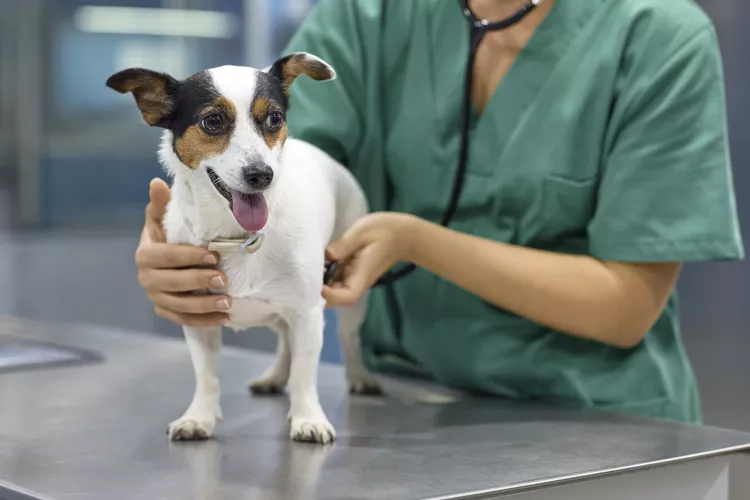- 01 of 09
Store Fertilizer and Lawn Products Out of Reach
Seal fertilizer, weed killers, and other lawn-care containers and keep them out of your pets’ reach. Consuming these products could lead to stomach upset, vomiting, or diarrhea if they get into a bag of product and consume several mouthfuls, Schmid says. Contact your vet or a pet poison hotline if you believe your pet ingested any of these chemicals.
Sensitive pets who get fertilizer residue on their paws may experience skin irritation or minor stomach upset if they lick their paws, but these symptoms will usually resolve on their own. You can limit potential sensitivities by keeping pets off the lawn for the product’s recommended waiting period after application.
- 02 of 09
Keep Up With Flea and Tick Preventatives
Keep your pet up-to-date on flea, tick, and heartworm prevention medication this spring. Location, pet health, and ease of application all play a role in the right medication for your pet, so Schmid recommends discussing your options with your vet. Many tick products kill the pest before it can transmit Lyme or other tick-borne diseases, but you should still remove a tick as soon as possible. Comb or brush your pets thoroughly after extended periods of time outside, especially in heavily wooded or bushy areas.
- 03 of 09
Vaccinated Against Lyme Disease
In certain areas of the country, ticks and Lyme disease are especially prevalent. If you have an ongoing issue with ticks and are worried about your pet, talk to your veterinarian about vaccinating them against Lyme disease. Research the prevalence of different types of ticks in different regions using the Centers for Disease Control and Prevention tick surveillance maps.
- 04 of 09
Keep Lilies Away From Cats
The entire lily plant is extremely toxic to cats and can cause kidney failure, seizures, and even death. Lilies often show up in floral arrangements around spring holidays like Easter and Mother’s Day, so if you have a cat with a history of chewing plants, you should keep lilies out of your home and garden for their safety.
Continue to 5 of 9 below - 05 of 09
Know Your Outdoor Plants
As you begin spring landscaping and gardening, be aware of outdoor plants and trees that are toxic to animals. Look out for Japanese yew trees, which contain toxins that can cause heart rate and blood pressure issues if ingested, as well as the bulbs of daffodils, tulips, and other flowers,. They can cause stomach upset or obstruction issues if dug up and consumed. If you are unsure whether a certain plant is safe for your pets, check out the ASPCA library on plant toxicity for dogs and cats for more information.
- 06 of 09
Watch Out for Bees
According to Schmid, the severity of a bee sting partially depends on where the pet is stung. A sting with minor swelling on a paw, leg, or other part of the body will likely not cause major issues, and Schmid recommends consulting a veterinarian about the use of over-the-counter Benadryl to treat the swelling. A sting on the face, on the other hand, could be more serious. If you suspect your pet has been stung by a bee, call your vet right away and monitor your pet for signs of an allergic reaction.
- 07 of 09
Pets Can Have Seasonal Allergies, Too
Your pet may be allergic to outdoor allergens such as pollen and grass, so keep an eye out for signs of irritation: constant chewing or licking of the paws, recurring ear infections, and overall itchy and scratchy skin. Depending on the severity of the allergy, there are both prescription and over-the-counter medications that can treat your pet’s symptoms. Talk to your vet about what options might work best for you.
- 08 of 09
Keep Cleaning Products Out of Reach
If your family plans to tackle some spring cleaning projects, be intentional about where you store cleaning products and chemicals. Many cleaning products that are diluted, such as a multipurpose spray or countertop cleaner, could cause stomach upset. More concentrated, heavy duty cleaners, however, could lead to more serious problems, including mouth and esophageal ulcers, Schmid says.
Store all cleaning products out of reach of your pets, and keep them away from any freshly cleaned areas until products have dried. If your pet gets into a cleaning product they shouldn’t, contact your veterinarian or a pet poison hotline.
Continue to 9 of 9 below - 09 of 09
Update ID Tags and Microchips
With extra time spent outside enjoying the nice weather, ensure your pet has a properly fitting collar with a tag that gives identifying information, including name, address, and phone number, and consider getting them microchipped if they aren't already. If your pet is microchipped and you've moved since, take some time to update the contact information so if your pet ever gets lost, they'll have an easier time making it back home safe and sound.




















